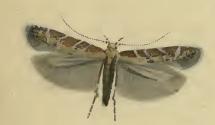The United Party of New Zealand, a party formed out of the remnants of the Liberal Party, formed a government between 1928 and 1935, and in 1936 merged with the Reform Party to establish the National Party.

Aristotelia serrata, commonly known as wineberry or in the Māori language makomako or just mako, is a small tree in the family Elaeocarpaceae, in the genus Aristotelia, found in the North Island, South Island and Stewart Island of New Zealand.

Fifty Million Frenchmen is a 1931 American pre-Code musical comedy film directed by Lloyd Bacon. It was photographed entirely in Technicolor. The film was produced and released by Warner Brothers, and was based on Cole Porter's 1929 Broadway musical Fifty Million Frenchmen.

The Bachelor Father is a 1931 American pre-Code MGM comedy drama film directed by Robert Z. Leonard and starring Marion Davies and featuring Ralph Forbes, C. Aubrey Smith, Ray Milland and Guinn "Big Boy" Williams. It was based on a same-titled play by Edward Childs Carpenter, with Smith re-creating his role from the Broadway production. The plot centers around a stuffy British nobleman whose three grown children suddenly arrive at his estate and decide to move in with him.

Aristotelia is a genus of moths in the family Gelechiidae. Well-known species are food plant specialists, and diverse hosts are used – Salicaceae, Solanaceae, Rosaceae, Fagaceae, Fabaceae, Asteraceae.

The United Government of New Zealand was the government of New Zealand from 1928 to 1931, defeating the long-lived Reform Government. The United Party had been formed in 1927 from the remnants of the Liberal Party under Sir Joseph Ward, who had made a political comeback. They did not manage an outright win, but formed a government with Labour Party support. However, Ward was in poor health and was eventually succeeded by George Forbes. The new cabinet was notable for its inexperience, with four ministers not having sat in the House of Representatives previously.

Aristotelia is a genus with 18 species, of tree in the family Elaeocarpaceae. It is named in honor of the Greek philosopher, observer and classifier of nature, Aristotle.

Aristotelia chilensis, known as maqui or Chilean wineberry, is a tree species in the Elaeocarpaceae family native to South America in the Valdivian temperate rainforests of Chile and adjacent regions of southern Argentina. Limited numbers of these trees are cultivated in gardens for their small fruits, known as maqui berries. Most of the fruits commercially marketed come from the wild.

Aristotelia roseosuffusella, the pink-washed aristotelia, clover aristotelia moth or garden webworm, is a moth in the family Gelechiidae. It is found in North America, including Alabama, Georgia, Illinois, Kentucky, Maryland, Massachusetts, Michigan, New Jersey, Oklahoma, Ontario, South Carolina, Tennessee and Virginia. The species was first described by James Brackenridge Clemens in 1860.

Aristotelia brizella is a moth of the family Gelechiidae. It is found in most of Europe, except Ireland, Switzerland and most of the Balkan Peninsula. Outside of Europe, it is found in North Africa and the Near East.
Aristotelia decoratella is a moth of the family Gelechiidae. It is found in Portugal, France, Italy, Switzerland, Germany, Hungary, Slovakia, Bulgaria, Russia, as well as on Sardinia, Corsica and Sicily. It is also present in Asia Minor.
Anomologinae is a subfamily of moths in the family Gelechiidae.
Aristotelia melanaphra is a moth of the family Gelechiidae. It was described by Edward Meyrick in 1923. It is found in North America, where it has been recorded from California.
Aristotelia lespedezae is a moth of the family Gelechiidae. It was described by Annette Frances Braun in 1930. It is found in North America, where it has been recorded from Alabama, Florida, Kentucky, Maine, North Carolina, Ohio, Oklahoma and West Virginia.
Aristotelia lignicolora is a moth of the family Gelechiidae. It was described by William Trowbridge Merrifield Forbes in 1931. It is found in Puerto Rico.
Aristotelia psoraleae is a moth of the family Gelechiidae. It was described by Annette Frances Braun in 1930. It is found in North America, where it has been recorded from California, Kentucky, Montana and Ohio.
Aristotelia vagabundella is a moth of the family Gelechiidae. It was described by William Trowbridge Merrifield Forbes in 1931. It is found in Puerto Rico.







